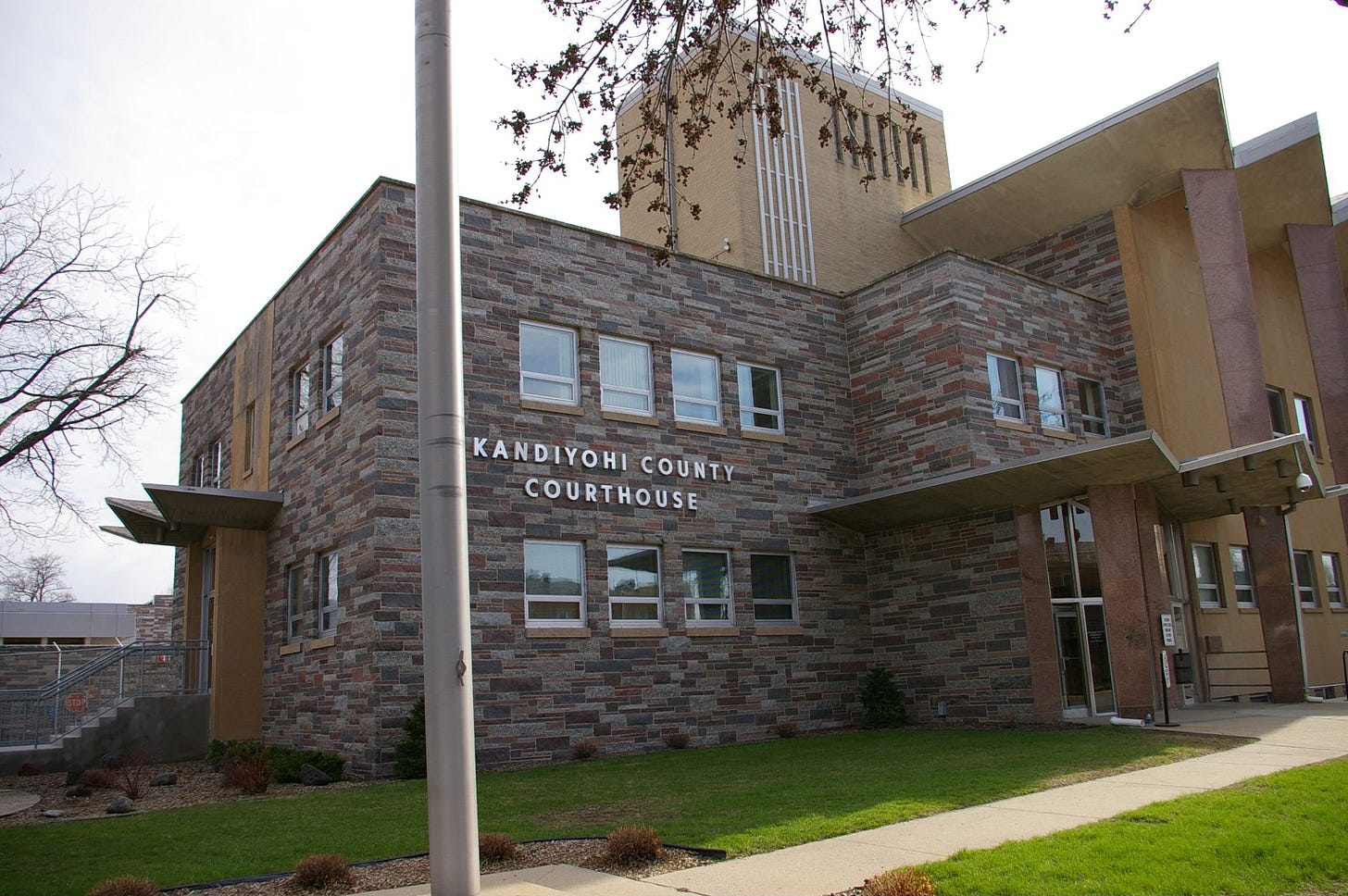Sentenced to College - Chapter 5
Angel's day in court
New here? Start from the beginning…
On September 8, 1998, 18-year-old Angel Hernandez appeared before Judge Donald M. Spilseth, ready to make a plea on the charges of “Receiving Stolen Property, Firearms” and “Crimes Committed for the Benefit of a Gang.” By then, he’d already served two and a half months in jail and was ready to plead guilty to the first charge, in exchange for the second charge being dropped.
The plea agreement also stated that Angel would have to fully disclose what exactly had happened on June 28, 1998—the night Willmar Police caught him, his friend J.T., and his younger brother with a stolen van and two loaded, sawed-off shotguns inside it.
At the plea hearing on September 8, Angel was represented by his public defender, Carter Greiner, and was questioned by Judge Spilseth to make sure he understood what was being put before him.
THE COURT: Do you understand that this agreement contemplates that you would enter a plea of guilty to Count I which is a felony charge?
THE DEFENDANT: Yes.
THE COURT: If you are convicted and sentenced in connection with Count I, this would result in a serious felony conviction on your record; do you understand that?
THE DEFENDANT: Yes.
THE COURT: If you do this, you are waiving your right to a trial and giving up a number of other important rights; do you understand that?
THE DEFENDANT: Yes.
THE COURT: With that in mind do you wish to proceed with a plea of guilty pursuant to this agreement, or would you rather proceed with this matter on a trial? A trial is scheduled for September 22nd.
THE DEFENDANT: I don't know.
![[ j o y . t h e . c u r i o u s ]](https://substackcdn.com/image/fetch/$s_!UzSv!,w_40,h_40,c_fill,f_auto,q_auto:good,fl_progressive:steep/https%3A%2F%2Fsubstack-post-media.s3.amazonaws.com%2Fpublic%2Fimages%2F9a3fc6e9-2c7b-49f3-a947-5510d6ac2bd3_500x500.png)
![[ j o y . t h e . c u r i o u s ]](https://substackcdn.com/image/fetch/$s_!RoQy!,e_trim:10:white/e_trim:10:transparent/h_72,c_limit,f_auto,q_auto:good,fl_progressive:steep/https%3A%2F%2Fsubstack-post-media.s3.amazonaws.com%2Fpublic%2Fimages%2Ff10a4cb8-9c26-4c77-a86d-fd0df8c2f58f_1344x256.png)

